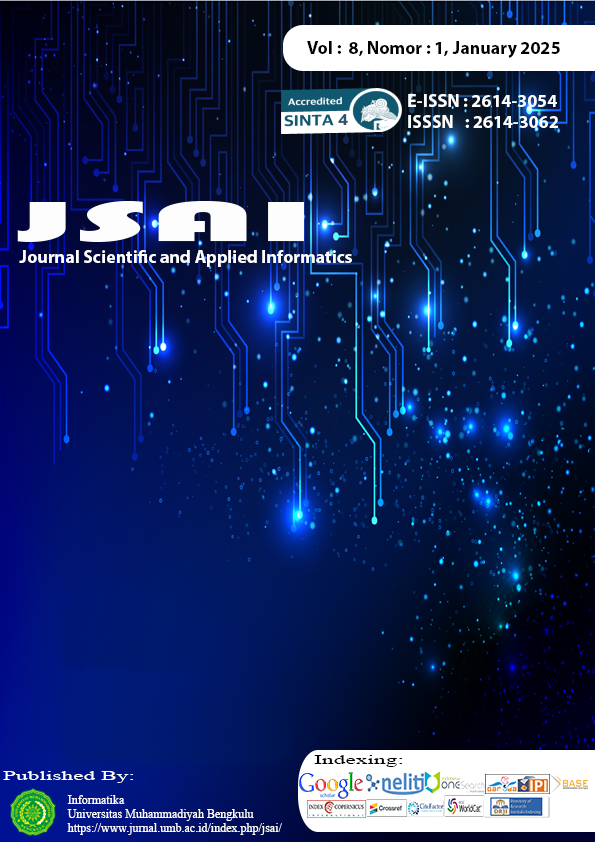Analysis of Explicit Knowledge and Tacit Knowledge Factors for the Implementation of Human Capital Management System
DOI:
https://doi.org/10.36085/jsai.v8i1.7908Abstract
In the era of a knowledge-based economy, Human Capital Management System (HCMS) has become increasingly important, particularly in the context of higher education. This study aims to analyze the influence of tacit knowledge sharing and explicit knowledge sharing on the human capital of university students. A quantitative approach was used by collecting data from 430 students through an online survey, with 420 valid responses analyzed using the Structural Equation Modeling (SEM) method. The results indicate that tacit knowledge sharing has a more significant impact on Human Capital than explicit knowledge sharing, with a t-statistics value of 6.777 and a P-Value of 0.000, demonstrating a strong and significant relationship. Meanwhile, the relationship between explicit knowledge sharing and human capital showed a t-statistics value of 1.777 with a p-value of 0.076, which remains within the hypothesis acceptance threshold but is less dominant. The implications of this study suggest that universities should design HCMS strategies that focus more on strengthening tacit knowledge sharing, such as mentoring, group discussions, and experiential learning programs. Additionally, technology-based learning management systems remain essential for documenting and distributing explicit knowledge.
Downloads
Published
Issue
Section
License
Copyright (c) 2025 Handrie Noprisson

This work is licensed under a Creative Commons Attribution-NonCommercial-NoDerivatives 4.0 International License.







